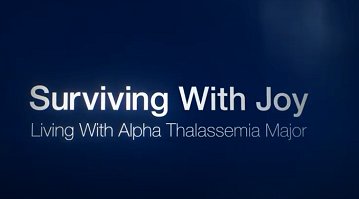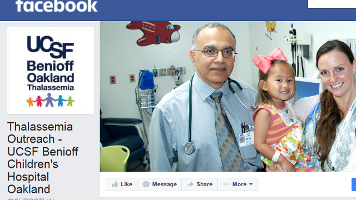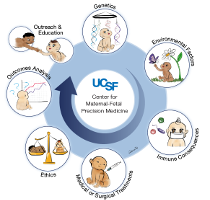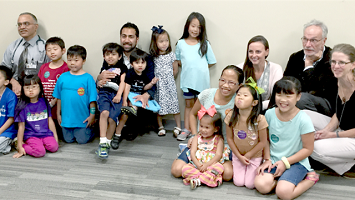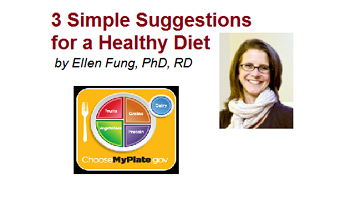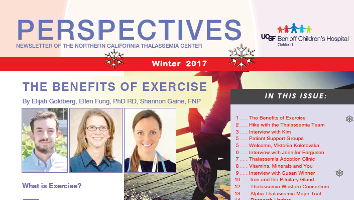Patient Stories
Opening Up for the First Time
by Jane Huynh
As people with a chronic disease, thalassemia patients go through some painful periods in life, in addition to the regular troubles of everyday living. I recently accepted the fact that I had been slightly depressive for a very long time. After years of denial, I finally took steps for treatment and I’m very glad that I did.
As long as I can remember, I’ve always been a fairly gloomy, withdrawn person. Having my birthday on Halloween never helped much in the matter, either. I accepted it as a part of myself. I am introverted and interested in gothic things. My bookshelf is filled with Anne Rice novels and Phantom of the Opera memorabilia.
Like some other thalassemia patients, I didn’t quite hit puberty and started taking hormone replacement pills at age 16. Since then, my monthly menstrual cycle was very predictable. I just counted the pills. Along with predictable menstruation periods came very predictable mood swings. Each month, I would go into a bout of slight depression. I would dwell on unhappy thoughts and cry myself to sleep for several nights in a row. Even though I recognized that the situation was caused by the mood swings, I could not control myself. I just waited for the periods to pass. Then life would be normal again for another few weeks.
I lived this way for about eight years. Then my menstrual cycle and mood swings started changing. The mood swings came more often, no longer in alignment with my menstrual cycle. They became a daily part of life. At the time, life had become very different for me. I had left college and was working a very stressful job. Being shy and introverted, I never had many friends, but what friendships I had were becoming shaky. Living with my parents as an adult was also difficult because I needed more space and independence. All of these issues were probably just too much for me. I had always taken pride in my inner strength and the ability to weather tough situations, so I faced these issues like I always faced everything else. To perk myself up, I enrolled in San Francisco City College classes, volunteered at the San Francisco Society for the Prevention of Cruelty to Animals (SPCA), joined an online dating service (yeah…I really did), and just kept myself active. All these things held my attention when I was involved with them, but the moment I had time to let my mind wander, I’d start thinking unhappy thoughts about myself and my life. Basically, periods of unhappiness had gone from monthly annoyances to daily occurrences.
I started to speak with my primary care, women’s health, and endocrine doctors about possible solutions such as changing my hormone replacement dose and type. I ended up trying B vitamins and reducing my menstruation from monthly to quarterly. Neither of these efforts seemed to do much to improve my mood. I just kept spiraling downward to the point where I’d spend my weekends crying in bed. My emotions took control of me and I wasn’t able to drag myself to do the things that I enjoyed. I was like this for about a year until I accepted the need to speak to a mental health care professional. My epiphany came when my depression began causing me to physically hurting myself (although not that much--don’t worry!). Luckily, my health care plan had a mental health component, and I called up the service for a referral. I wasn’t quite sure what I needed, and I wasn’t even sure what I was experiencing was “depression,” but the people I spoke to gave me options and listened to what I was going through. I never knew how good it could feel to share my experience. Although nothing had been solved, I felt great relief just talking with someone who I knew wasn’t going to judge me.
I ended up seeing a psychiatrist who prescribed some low-dose antidepressants for me. One day, I’d like to see a therapist regularly. It did wonders for me to have someone to talk to. There are just so many things that I have never felt comfortable talking about with friends or family. I finally feel really content with life for once. That isn’t to say that I don’t feel any sadness anymore, but I can finally move forward again.
And I typed up my story because I hope it’s helpful to someone out there. I never knew how good it could be just to talk and have someone hear you out.
Recently, I went to a Thalassemia patient/family retreat in Monterey and noticed how good it felt to speak freely about the awful taste of Exjade and the worry of telling my new boyfriend about Thalassemia. We were twenty patients living in a four bedroom, two bath house for a weekend, so there was little to no privacy. Nonetheless, I felt very comfortable, even around the people I had not met before. The biggest secret of my life (being a Thal patient) was common knowledge at the retreat, so there was really no need to hold back. While we played games, cooked dinner, watched television, and just hung out, I could just be myself. Knowing there was a common bond and understanding between all of us made me feel very much at home. I’ve always been an extremely private person, but I am really starting to see the value of opening up and letting loose.

